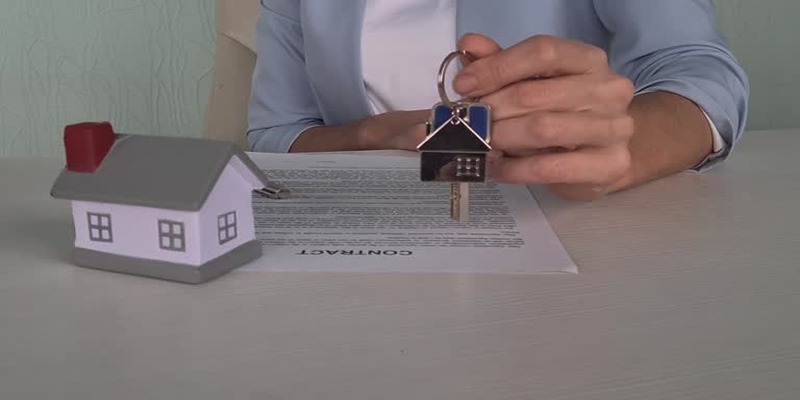Best Loan Options for First-Time Homebuyers Explained
Buying your first home is an exciting milestone, but it can also feel overwhelming, especially when it comes to finding the right loan. There are many options available, and choosing the best one depends on your needs, finances, and future plans. This guide will explain the different types of home loans specially designed for first-time buyers. Understanding your options can make the process smoother and help you move one step closer to owning your dream home.
Federal Housing Administration (FHA) Loans

First-time homebuyers select FHA loans due to their widespread popularity. Such loans carry Federal Housing Administration insurance which enables borrowers to pay smaller down payments than traditional loans. These loans require only 3.5% down payment which serves individuals with small present savings. FHA loans often provide more understanding credit requirements which helps people with imperfect credit scores to apply.
Multiple disadvantages need examination prior to selecting an FHA loan. The initial premium for mortgage insurance together with periodic insurance costs raise the total amount you need to pay each month. Mortgage insurance must be paid throughout the entirety of your loan term since you cannot eliminate this requirement as you do with conventional loans.
Conventional Loans
Homebuyers who need down payment assistance typically use conventional loans because they fail to receive government support but need to set aside more money into the house purchase. People who possess strong credit history and stable work experience along with savings equivalent to twenty percent of their house price will benefit most from conventional loans.
The advantage of choosing a conventional loan is that you won't have to pay mortgage insurance if you put down at least 20%. However, keep in mind that lenders may have stricter eligibility criteria, and a lower down payment can result in higher interest rates or private mortgage insurance payments.
Veterans Affairs (VA) Loans
VA loans are an excellent option for eligible veterans, active-duty service members, and their families. VA loans also have more lenient credit requirements, making homeownership more accessible to those who have served in the military.
One notable benefit of VA loans is the flexibility they provide in terms of financing options, including assistance programs for those facing financial difficulties. However, borrowers should be aware of the VA funding fee, which is a one-time payment that helps support the program and varies depending on the loan amount, borrowing history, and whether a down payment was made. Despite this fee, VA loans remain one of the most affordable and attractive loan options for qualifying individuals.
United States Department of Agriculture (USDA) Loans
These loans offer the benefit of no down payment and competitive interest rates, making them an appealing option for first-time buyers with moderate to low incomes. Additionally, USDA loans have lower mortgage insurance costs compared to FHA loans.
While USDA loans have numerous benefits, they come with specific eligibility requirements, including income limits and restrictions on the property’s location. Buyers must ensure that the home they want to purchase is in an eligible rural or suburban area, as determined by the USDA. If you meet the eligibility criteria, USDA loans can be a cost-effective way to secure home financing.
Good Neighbor Next Door Program
The Good Neighbor Next Door (GNND) program, sponsored by the U.S. Department of Housing and Urban Development (HUD), is a unique loan option for first-time homebuyers who are also teachers, law enforcement officers, firefighters, or emergency medical technicians. The program offers eligible participants with a 50% discount on the home's list price in designated "revitalization areas." This can make homeownership more affordable for those in these vital professions.
To qualify for this program, buyers must commit to living in the purchased property as their primary residence for at least three years. The GNND program aims to promote community involvement and strengthen neighborhoods by providing affordable housing options for those who serve the community.
Energy-Efficient Mortgage (EEM)
An Energy-Efficient Mortgage (EEM) is a great way for homebuyers to roll energy-efficient upgrades right into their mortgage. Think solar panels, better insulation, upgraded HVAC systems, and more! These improvements can help you save money on utility bills and even lower your carbon footprint—it's a win-win for you and the planet.
The EEM program is available through FHA or VA loans and often offers competitive interest rates and no additional down payment requirements. However, it's essential to ensure that the cost of the improvements does not exceed the value they add to the property. It may also be beneficial to consult with a certified energy auditor to determine which upgrades will provide the most significant cost savings over time.
7(a) loans

7(a) loans are a type of Small Business Administration (SBA) loan that can be used for commercial real estate financing. This option is ideal for those who want to purchase a property for their business or invest in commercial real estate. These loans offer competitive interest rates and terms, making them an attractive choice for entrepreneurs looking to secure funding.
One significant advantage of 7(a) loans is that they typically require lower down payments compared to conventional commercial loans, allowing businesses with limited capital to still acquire property. However, these loans do have strict eligibility requirements, including a detailed business plan and demonstrated ability to repay the loan.
Conclusion
When considering real estate investments or property improvements, it's crucial to weigh the costs and benefits carefully to ensure a positive financial outcome. Whether utilizing energy-efficient upgrades to enhance property value or exploring financing options like 7(a) loans for commercial real estate purchases, thorough planning and research are key. By understanding the available tools and maintaining a clear strategy, individuals and businesses can achieve their property goals while maximizing long-term value and sustainability.












